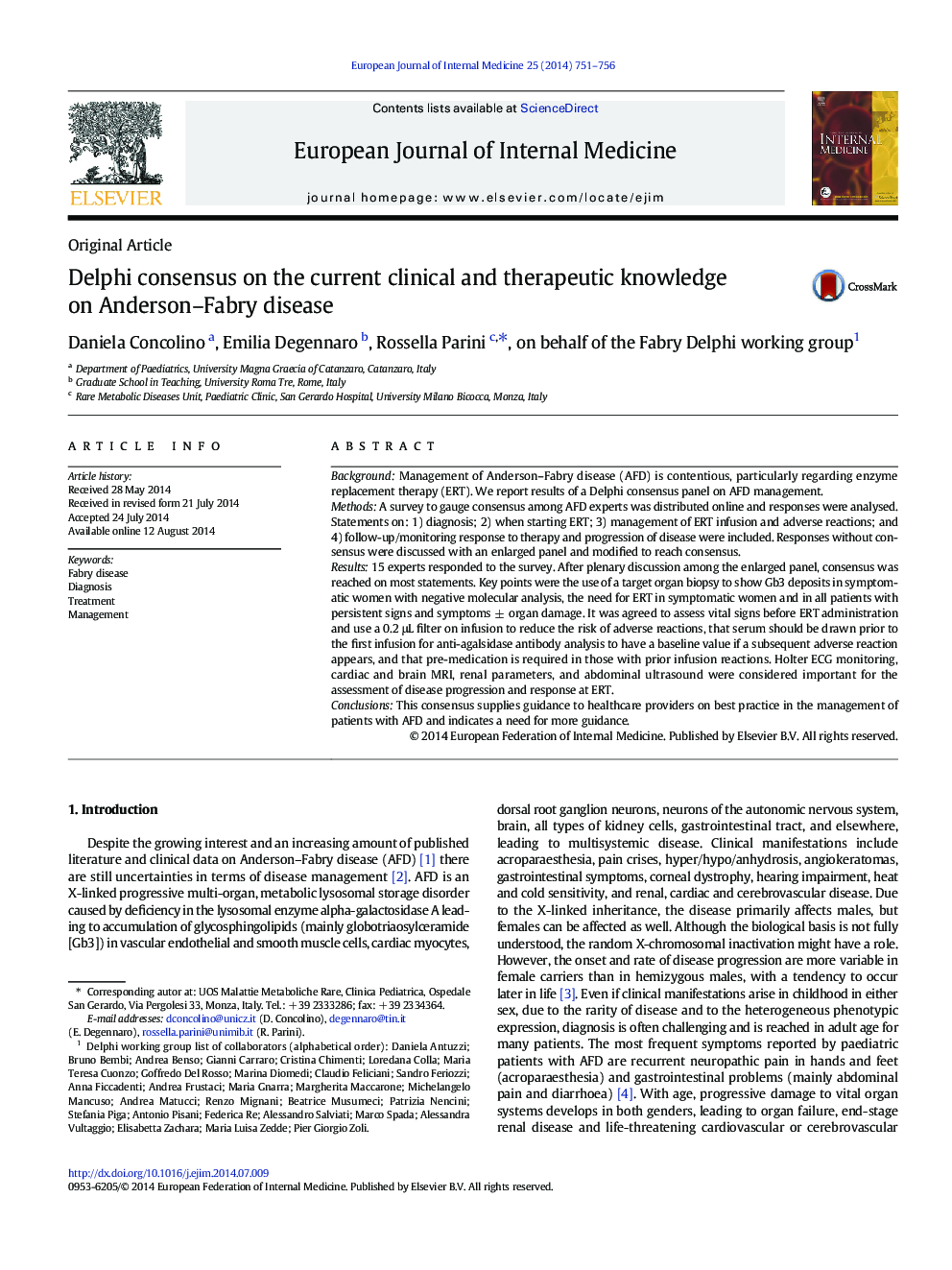| کد مقاله | کد نشریه | سال انتشار | مقاله انگلیسی | نسخه تمام متن |
|---|---|---|---|---|
| 3466178 | 1596552 | 2014 | 6 صفحه PDF | دانلود رایگان |
• AFD is X-linked but individuals of both sexes may be affected.
• Diagnosis in symptomatic women is made through a positive molecular genetic analysis.
• If no mutation is found women may need target organ biopsy.
• ERT must be started in all individuals with persistent signs and symptoms.
• Multidisciplinary follow-up is advised for AFD patients.
BackgroundManagement of Anderson–Fabry disease (AFD) is contentious, particularly regarding enzyme replacement therapy (ERT). We report results of a Delphi consensus panel on AFD management.MethodsA survey to gauge consensus among AFD experts was distributed online and responses were analysed. Statements on: 1) diagnosis; 2) when starting ERT; 3) management of ERT infusion and adverse reactions; and 4) follow-up/monitoring response to therapy and progression of disease were included. Responses without consensus were discussed with an enlarged panel and modified to reach consensus.Results15 experts responded to the survey. After plenary discussion among the enlarged panel, consensus was reached on most statements. Key points were the use of a target organ biopsy to show Gb3 deposits in symptomatic women with negative molecular analysis, the need for ERT in symptomatic women and in all patients with persistent signs and symptoms ± organ damage. It was agreed to assess vital signs before ERT administration and use a 0.2 μL filter on infusion to reduce the risk of adverse reactions, that serum should be drawn prior to the first infusion for anti-agalsidase antibody analysis to have a baseline value if a subsequent adverse reaction appears, and that pre-medication is required in those with prior infusion reactions. Holter ECG monitoring, cardiac and brain MRI, renal parameters, and abdominal ultrasound were considered important for the assessment of disease progression and response at ERT.ConclusionsThis consensus supplies guidance to healthcare providers on best practice in the management of patients with AFD and indicates a need for more guidance.
Journal: European Journal of Internal Medicine - Volume 25, Issue 8, October 2014, Pages 751–756
